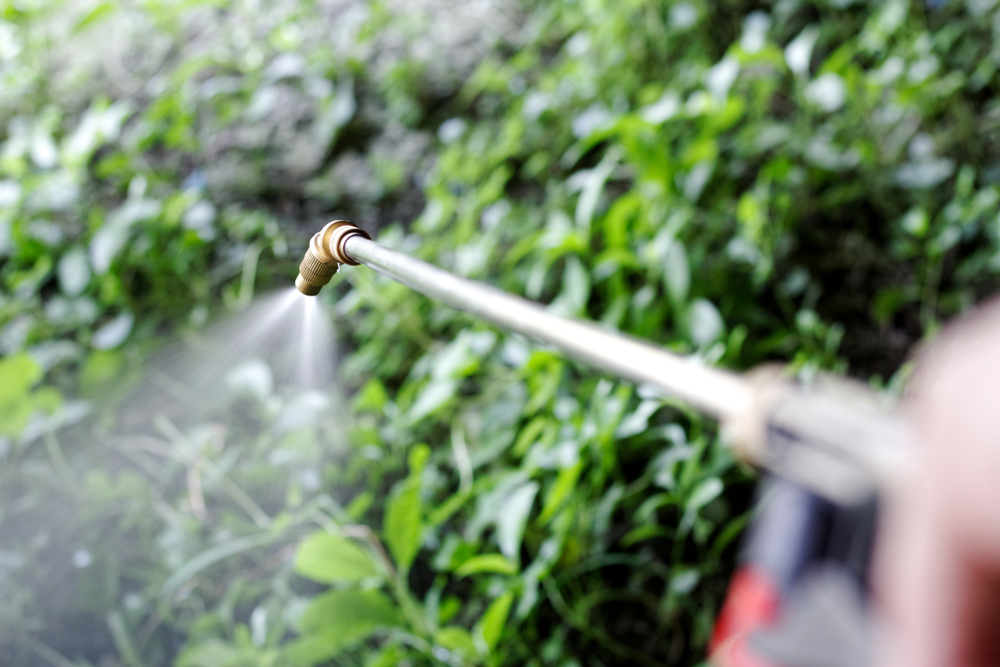In a significant blow to pharmaceutical giant Bayer AG, a Philadelphia jury on Friday ordered the company to pay $175 million in damages in a trial involving their widely-used weed killer, Roundup. The plaintiff, retired restaurant owner Ernest Caranci, claimed that his prolonged exposure to Roundup caused him to develop non-Hodgkin’s lymphoma. This and a $1.25 million verdict delivered in a separate Roundup trial the week prior mark a departure from previous outcomes, where Bayer had successfully defended against similar cancer claims. The implications these Roundup verdicts may have for both Bayer and the broader conversation surrounding Roundup and its potential health risks could be substantial.
The Verdict and Damages Awarded
Since Bayer acquired Roundup as part of its $63 billion purchase of Monsanto in 2018, the company has been plagued by lawsuits like Caranci’s alleging that Roundup causes cancer. Caranci’s trial progressed for three weeks, after which the Philadelphia Common Pleas Court jury found Bayer liable and ordered them to pay $25 million in compensatory damages and an additional $150 million in punitive damages. This verdict signifies a shift in the legal tide, particularly for Bayer, which had previously won nine consecutive trials involving Roundup. The substantial punitive damages underscore the jury’s determination to send a strong message to the company.
Roundup and Non-Hodgkin’s Lymphoma Link
Roundup, a weed killer originally developed by Monsanto Co., now a subsidiary of Bayer, contains glyphosate as its active ingredient. Glyphosate has been the subject of intense scrutiny in recent years, as well as numerous studies examining its potential links to cancer. Caranci’s claim was centered around his long-term use of Roundup in his garden, alleging that it resulted in his diagnosis of non-Hodgkin’s lymphoma (NHL).
A rare type of blood cancer that forms in the lymph system, NHL affects white blood cells called lymphocytes, which are an important part of the immune system. According to the Mayo Clinic, advances in the diagnosis and treatment of non-Hodgkin’s lymphoma have helped improve the prognosis for people with this disease. However, survival rates can vary widely depending on the subtype and stage of cancer, among other factors.
Scientific Studies and Safety Concerns
Decades of scientific research have been conducted to assess the safety of glyphosate and Roundup. While Bayer maintains that these studies affirm the safety of their product, some studies have suggested a link between glyphosate and an increased risk of cancer, specifically non-Hodgkin’s lymphoma. In one meta-analysis of glyphosate published in the journal Mutation Research/Reviews in Mutation Research in 2019, researchers found that people with high exposure to glyphosate-based herbicides have a 41% increased risk of developing NHL. The World Health Organization’s International Agency for Research on Cancer (IARC) classified glyphosate as a “probable carcinogen” in 2015, further fueling concerns about its safety.
Previous Legal Challenges and Settlements
Bayer’s acquisition of Monsanto in 2018 brought with it a multitude of legal challenges related to Roundup. Despite settling most Roundup claims for up to $10.9 billion in 2020, the company still faces nearly 40,000 Roundup-related complaints. Last week, Bayer was hit with a $1.25 million verdict in a separate Roundup trial, further highlighting the mounting legal pressure they are facing. This latest Roundup verdict raises additional questions about the safety and potential future liability associated with the weed killer. As the most widely used herbicide in the world, the outcome of these Roundup claims could have far-reaching consequences for the agricultural industry. It may prompt increased scrutiny of glyphosate-based products and potentially lead to stricter regulations or even bans in certain jurisdictions.
Bayer’s Response and the Future of Roundup Litigation
The recent $175 million verdict in the Philadelphia Roundup cancer trial represents a major setback for the company and highlights growing concerns about the safety of glyphosate-based weed killers. In response to the verdict, Bayer expressed their disagreement and vowed to appeal, stating their confidence in overturning the decision and reducing the damages awarded.
With thousands of Roundup-related claims still pending against Bayer, it is likely that the outcome of future trials will shape the overall landscape of litigation surrounding Roundup and its potential health risks. The verdict in the Caranci trial may serve as encouragement for other plaintiffs and their legal teams, potentially leading to more significant settlements or verdicts against Bayer in the future.
Roundup Lawsuit Information
Mayo Clinic, Non-Hodgkin's lymphoma
REUTERS, Bayer ordered to pay $175 million in latest Roundup cancer trial
REUTERS, Bayer must pay $1.25 million in Roundup cancer trial, jury finds




